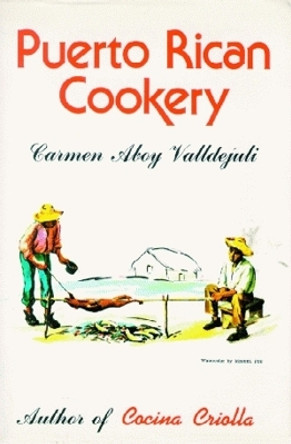Description
Winner of the 2022 Frank Bonilla Book Award, sponsored by the Puerto Rican Studies Association
Winner of the 2022 Gregory Bateson Book Prize, sponsored by the Society for Cultural Anthropology
Brings to life Afro-Puerto Rican women's creative struggles for environmental justice
When Hurricanes Irma and Maria made landfall in Puerto Rico in September 2017, their destructive force further devastated an archipelago already pummeled by economic austerity, political upheaval, and environmental calamities. To navigate these multiple ongoing crises, Afro-Puerto Rican women have drawn from their cultural knowledge to engage in daily improvisations that enable their communities to survive and thrive. Their life-affirming practices, developed and passed down through generations, offer powerful modes of resistance to gendered and racialized exploitation, ecological ruination, and deepening capitalist extraction. Through solidarity, reciprocity, and an ethics of care, these women create restorative alternatives to dispossession to produce good, meaningful lives for their communities.
Making Livable Worlds weaves together autobiography, ethnography, interviews, memories, and fieldwork to recast narratives that continuously erase Black Puerto Rican women as agents of social change. In doing so, Llorens serves as an "ethnographer of home" as she brings to life the powerful histories and testimonies of a marginalized, disavowed community that has been treated as disposable.
Brings to life Afro-Puerto Rican women's creative struggles for environmental justice
About the Author
Hilda Llorens is associate professor of anthropology at the University of Rhode Island and author of Imaging the Great Puerto Rican Family: Framing Nation, Race, and Gender during the American Century.
Reviews
"With memories and stories at the forefront, the book is a magisterial contribution to the discipline of anthropology."
* North American Congress on Latin America *"For those designing undergraduate and graduate courses in Puerto Rican Studies, Latinx Studies, and Ethnic Studies and seeking readings that present innovative methodological and epistemological contributions, Hilda Llorens' Making Livable Worlds is highly recommended. The work invites spirited and engaging classroom discussions that promote expanded thinking in written work. Beyond the classroom, Llorens's methodology and nuanced treatment of too often simplified contested concepts make all-important contributions to these fields of study. Her serious attention to the daily work and interventions of Black and Afro-Puerto Rican women to make livable worlds in the here and now and for coming generations addresses gaping holes in environmental justice-minded Puerto Rican Studies, Latinx Studies, and Ethnic Studies"
* Latinx Project, New York University *"The primary strength of Llorens's book rests in the intimacy that she brings to excavating the troubling environmental injustices Black Puerto Rican women have to live under even as they struggle against marginalization...Making Livable Worlds is a timely and necessary examination of the growing crisis in environmental justice and other cultural issues such as gender, race, and the effects of colonialism."
* Lateral, Journal of the Cultural Studies Association *"Powerful and beautifully written, Making Livable Worlds opens an ecofeminist archive that invites researchers to extend this kind of study to other islands. It also provides inspiration on how to undertake this task with such methods as autoethnography, which will hopefully become more ingrained in the toolbox of young Caribbeanist scholars. One of the most important attributes of this work is that we hear through Llorens myriad voices presented not as heroines or victims but as women making the best out of their imposed dispossession."
* H-Environment *"Llorens' ambitious book skillfully weaves her personal and her family history with the histories of other Black Puerto Rican women in the coastal southeast part of Puerto Rico."
* Latino Studies *"Scholars of social reproduction and the solidarity economy will find Llorens's case study useful for understanding how alternative economic logics develop and flourish under adversity."
* H-Caribbean *"[P]rovides valuable insight on how capitalism, slavery, matriarchal dispossession, ecological crises, and colonization relate to Afro-Puerto Rican women's lives, and models liberatory responses to these oppressive circumstances, empowering the reader to engage in further action toward similar goals of collective liberation."
* Feminist Pedagogy *Awards
Winner of Gregory Bateson Book Prize 2022 (United States).
Book Information
ISBN 9780295749402
Author Hilda Llorens
Format Paperback
Page Count 224
Imprint University of Washington Press
Publisher University of Washington Press
Weight(grams) 295g









